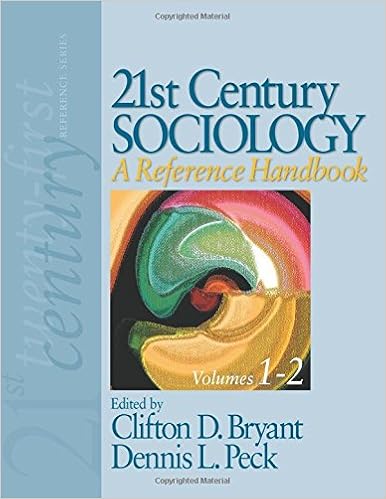By Monika Büscher (ed.), John Urry (ed.), Katian Witchger (ed.)
Within the twenty-first century, greater than ever, every little thing and everyone appears to be like at the flow. worldwide flows of individuals, items, foodstuff, funds, info, providers and media pictures are forming an intensely cellular historical past to lifestyle. Social scientists, too, are at the stream, looking new analytical buy on those vital features of the social international via attempting to flow with, and to be moved through, the fleeting, dispensed, a number of, non-causal, sensory, emotional and kinesthetic.
Mobile equipment addresses the demanding situations and possibilities of learning cellular phenomena. Drawing on large interdisciplinary dialogue, the booklet brings jointly a set of state-of-the-art methodological concepts and unique learn studies to envision a few very important implications of the mobilities flip for the techniques of ‘research’, and the area of the empirical. via research that addresses questions akin to ‘how are social relationships and social associations made in and during mobility?’, and ‘how do humans adventure mobility in twenty-first century global cities?', the authors mobilize sociological research, bringing new insights and commencing up new possibilities for engagement with modern challenges.
This e-book is a key textual content for undergraduate and postgraduate scholars of disciplines together with Human Geography, Social coverage, Sociology and examine equipment.









